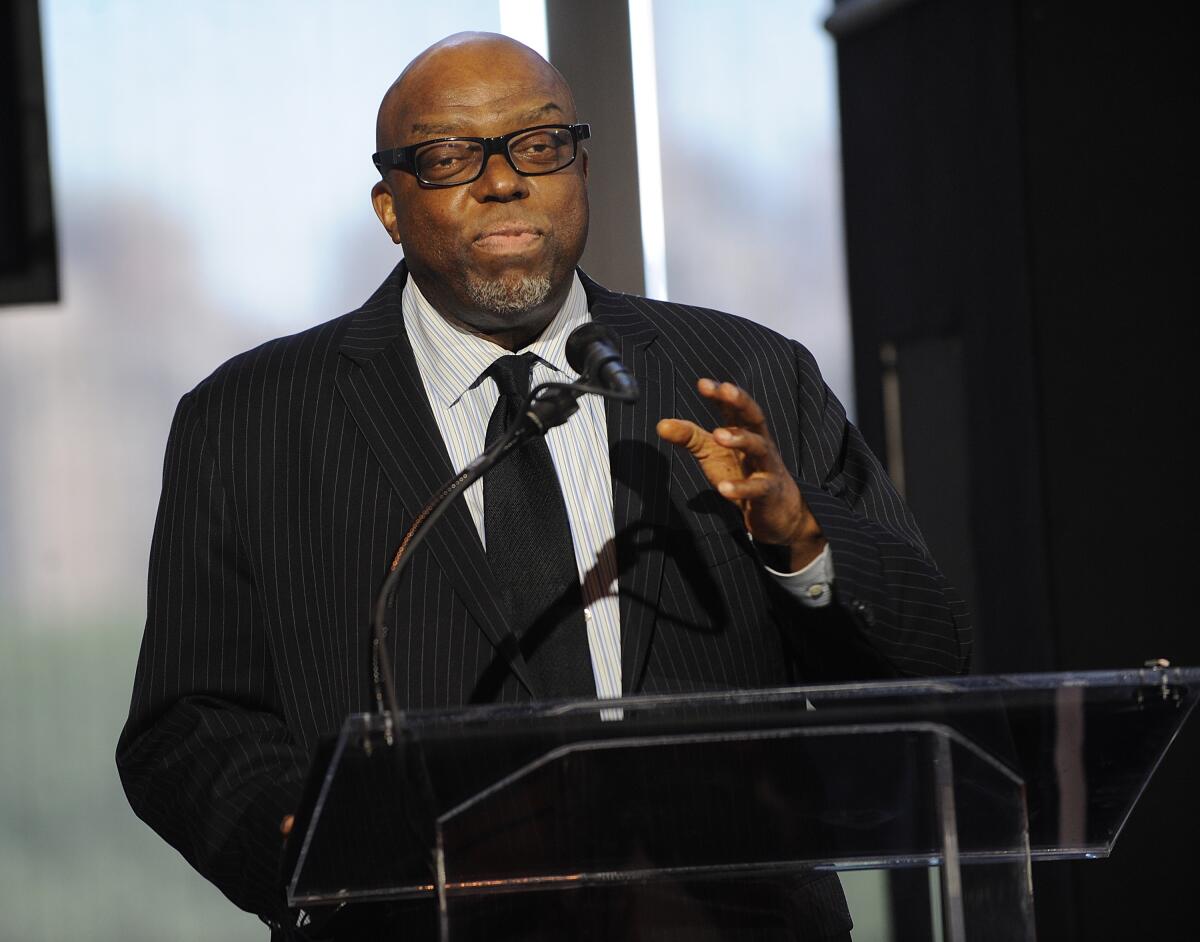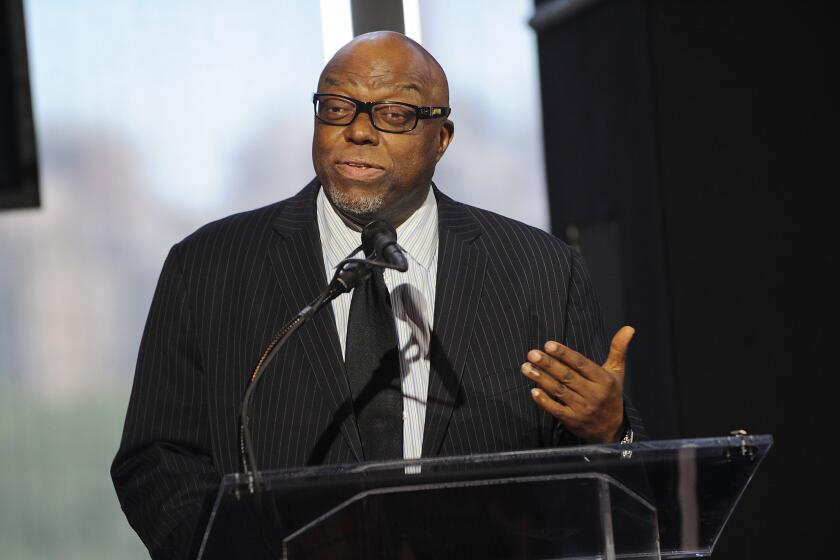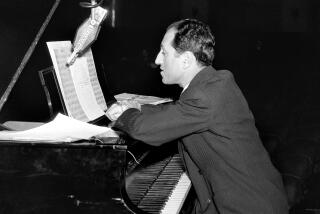Appreciation: Stanley Crouch, a towering critic, loved a good fight

Stanley Crouch was the most voluble man I ever met. He just flat-out loved to talk. Having glimpsed him declaiming his poetry at a dubious 1973 “men’s liberation” conference, I had my doubts when Village Voice jazz critic Gary Giddins told me excitedly that an actual Black jazz critic had immigrated to New York as the drummer for promising L.A. saxophonist David Murray. But as the Voice’s music editor, I was down with giving him a try, and while Stanley’s copy was seldom the cleanest, his musical ideas were so vivid and unconventional that I made room for him even though Giddins was as good as jazz criticism got. Musically, Crouch could stretch further, too: When Marvin Gaye released his strange two-LP “divorce album,” “Here, My Dear,” in 1978, Stanley nailed its virtues. So when Voice editor David Schneiderman made Crouch the paper’s first Black staff writer in 1980, I was asked to edit him, and soon we became good friends, socializing man-to-man and in foursomes.
By then the Voice office occupied the entire second floor of a Broadway building later converted into a movie multiplex. There was room to roam, and few roamed it more freely than Stanley Crouch. A hefty-to-stout six-footer with a neck few could get their hands around and a voice that penetrated cubicles and reached around corners, he was around a lot, chewing the ear off anyone he could pin down as he assumed the mantle of contrarian African American Ralph Ellison disciple Albert Murray. Murray’s signature book was called “The Omni-Americans,” and it was as an omni-American that Crouch challenged every lib/rad/boho truism Voicers held dear.
Stanley Crouch, a contentious and influential book and jazz critic, columnist and self-taught Renaissance man, died Wednesday at age 74
Crouch was a fervent American who was an even more fervent African American. He loved to perturb all comers by arguing that in the end the Middle Passage was good for Africans, but nowhere near as much as he loved to praise the richness and diversity of the Black cultures that the horrors of slavery made possible. For him, the peak of these cultures was jazz — from Armstrong to bebop, please, post-’60s not so much. His man David Murray proved a major artist who needed a more capable drummer than Stanley Crouch (although no jazz critic has described drumming more acutely). But with the saxophonist exploring avant-garde and pop byways, they would have parted even so, especially given Crouch’s 40-year bond with the neoclassical genius and promotional pizzazz of trumpeter Wynton Marsalis.
Stanley was offed at the Voice in 1988 after initiating a fistfight with “hip hop assassin” Harry Allen, whose Black pride ran so deep that he declared himself “proud to be punched by Stanley Crouch.” We stayed in touch — for a long while, Stanley would call out of the blue just to jaw some — but I didn’t follow his adventures that closely except to admire the unorthodox first volume of the vast Charlie Parker biography he never finished. So let me close with three precious memories.
In the first, he handed me a review so raggedy that instead of line-editing it gaffe by gaffe I just marked it up extensively but roughly and dispatched him to a computer monitor to rewrite. This he did in just 45 minutes, with superb results only loosely related to my scrawls.
The second memory features my daughter, Nina Christgau, whom Stanley would toss into the air, to the dismay of some Voicers, whenever she was in the office. No more than 3 then, Nina still remembers the feel of his beard and how hard he would hug her: “I’d be completely enveloped by this jolly bear of a man and feel completely safe. I cried when he died.”
Ted Gioia’s “Music: A Subversive History” is daringly ambitious but, laments critic Robert Christgau, disdains the pleasure of “mere entertainment.”
The third memory involves our own biggest fight at the Voice, which I initiated when Stanley, who regularly branded underlings “clerks,” disrespected a layout guy I knew to be one of our kindest and most diligent workers. I lit into Stanley and he lit right back and we ended up at my secluded desk with his teeth bared and his big chest smack against my scrawnier one. I kept yelling even though I was afraid his hands would soon be around my neck. Only then Stanley looked at me, took a step back, and said: “You’re really scared, aren’t you? You think I’m going to hurt you.”
“Damn right I’m scared, why shouldn’t I be?” In that instant the fight was over. I like to think, though I can’t swear to it, that he then apologized to the layout guy. For sure he had it in him.
Christgau is a veteran rock critic whose “Consumer Guide” now appears monthly in his Substack newsletter, And It Don’t Stop.
More to Read
Sign up for our Book Club newsletter
Get the latest news, events and more from the Los Angeles Times Book Club, and help us get L.A. reading and talking.
You may occasionally receive promotional content from the Los Angeles Times.







